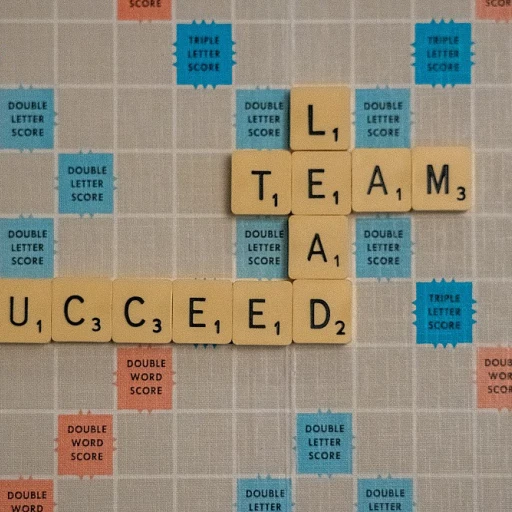
Understanding the Role of Human Resources in Education
The Integral Role of Human Resources in Educational Environments
In the dynamic landscape of education, particularly within institutions like Trinity Christian Academy, the human resources department plays a pivotal role in sculpting the academic experience. Responsible for more than just basic hiring and placements, human resources in a Christian school ensure the alignment of educational goals with the institution’s faith-based values.
The essence of a robust human resources strategy is reflected in how it supports educators and staff in nurturing future leaders. Students at all levels—be it in the lower school, middle school, or high school—are at an advantage when staff and faculty are meticulously selected and trained to foster a community committed to learning and faith.
Moreover, a focus on classical Christian education at Trinity not only augments students' thinking skills but also integrates godly principles with academic pursuits. This emphasizes the need for staff who not only excel in their educational capabilities but also embody the school’s Christian ethos. Teachers, assistant coaches, and even those involved in the fine arts gradually perfect their roles, creating an environment where students develop holistically.
With a strong foundation, human resources help ensure the longevity of this mission, continuously seeking talent for full-time and open positions that can adapt to the evolving demands of Christian education. This involves gathering data about employment applications and strategically analyzing it to meet the school’s needs, a task central to improving recruitment processes.
Career Paths at Trinity Christian Academy
Exploring Employment Opportunities at Trinity Christian Academy
Trinity Christian Academy offers a variety of career paths within its educational framework, each contributing to the rich environment of classical Christian education. For individuals interested in joining the staff at this renowned institution, there are several positions available ranging from teaching roles to assistant coach positions.
At Trinity Christian Academy, the lower, middle, and upper schools provide diverse opportunities for educators who are passionate about fostering critical thinking skills and helping students develop. Teachers in these schools deliver a robust curriculum that includes disciplines such as history, fine arts, and classical education, all while guiding students to learn and grow in their relationship with God.
- Lower School: Focuses on foundational learning, essential for grades where students begin their journey into structured education.
- Middle School: A bridge that supports adolescents' transition and prepares them for the rigors of higher grades.
- Upper School: Prepares students for the challenges of the real world, ensuring they are ready for college or other post-secondary paths.
For those considering a full-time commitment to education, Trinity not only provides employment but promotes an enriching work experience. The academy values its staff, offering avenues for professional development and growth to align educators’ career aspirations with the institution's mission.
With openings announced each new year, potential applicants can anticipate a straightforward application process. Those interested can check the trinity christian website for specifics on open positions or teacher applications. Additionally, more insights into the dynamics of employment transitions can be found in this comprehensive guide.
Analyzing Human Resources Data for Better Recruitment
Enhancing Recruitment through Data Analysis
Recruiting the right staff at Trinity Christian Academy has a profound impact on students' success and the school environment. By meticulously analyzing human resources data, Trinity Christian Academy aims to refine its recruitment strategy to secure the best-fit candidates for various positions. One approach involves leveraging employment data to identify trends and patterns in application and hiring processes. Analyzing past teacher application metrics helps understand which grade or subject areas, such as fine arts or classical education, attract the best applicants. Additionally, evaluating staff application patterns can spotlight the optimum timeframes to post open positions and the likelihood of attracting qualified talent. Here's how Trinity Christian uses data for improved recruitment:- Job Position Suitability: Assessing candidates' histories to align their experience with job requirements in high school, middle school, or lower school levels.
- Application Trends: Identifying the best times of year to reach potential staff, considering when students develop peak interest in certain activities.
- Candidate Criteria Analysis: Using data to refine the attributes of successful staff, understanding the characteristics that thrive within the Trinity environment, incorporating classical Christian education values.
Employee Retention Strategies
Enhancing Employee Satisfaction and Retention
At Trinity Christian Academy, fostering a supportive and engaging work environment is crucial for retaining talented staff. The school understands that employee retention is not just about maintaining numbers but about nurturing a community where staff feel valued and motivated. This is particularly important in a Christian education setting, where the mission extends beyond academics to include spiritual growth and development.
One of the key strategies involves creating clear career paths for staff members. As discussed earlier, Trinity offers diverse employment opportunities across various departments, from lower school to high school, including positions in fine arts and classical Christian education. By providing avenues for professional growth, the academy ensures that staff can envision a long-term future within the institution.
Building a Supportive Community
Another critical aspect of retention is fostering a sense of community among staff. Trinity Christian Academy emphasizes the importance of collaboration and support, encouraging staff to engage in activities that promote teamwork and shared values. This approach not only enhances job satisfaction but also aligns with the school's mission to integrate faith and learning.
Moreover, the academy offers professional development programs that help staff enhance their skills and stay updated with the latest educational trends. These programs are designed to support teachers and staff in their roles, whether they are involved in teaching arts, coaching, or administrative tasks. By investing in their development, Trinity ensures that staff are equipped to provide the best possible education to students.
Recognizing and Rewarding Contributions
Recognition and rewards play a significant role in employee retention. Trinity Christian Academy acknowledges the hard work and dedication of its staff through various recognition programs. These initiatives not only boost morale but also reinforce the value of each staff member's contribution to the school's mission.
In conclusion, Trinity Christian Academy's approach to employee retention is multifaceted, focusing on career development, community building, and recognition. By prioritizing these areas, the academy not only retains its talented staff but also ensures a thriving educational environment for its students.
Professional Development and Growth
Fostering Growth Through Continuous Learning
At Trinity Christian Academy, professional development is not just a buzzword; it is a cornerstone of our educational philosophy. We believe that when our staff, from teachers to assistant coaches, engage in continuous learning, they are better equipped to nurture the thinking skills of our students. This commitment to growth is evident across all levels, from the lower school to the high school.
Opportunities for Professional Development
Our academy offers a variety of professional development opportunities tailored to the needs of our staff. These include workshops on classical Christian education, seminars on integrating fine arts into the curriculum, and training sessions focused on enhancing educational technology skills. By investing in our staff's growth, we ensure that they are well-prepared to guide students through their academic journey, from middle school to upper school.
Encouraging a Culture of Lifelong Learning
We encourage our staff to pursue further education and certifications that align with their career paths. Whether it's a teacher application for a new certification or a staff application for a leadership role, Trinity Christian Academy supports these endeavors. This culture of lifelong learning not only benefits our staff but also enriches the educational experience of our students.
Aligning Professional Growth with School Goals
Our professional development initiatives are closely aligned with the academy's mission to provide a classical Christian education. By focusing on areas such as history, arts, and science, we ensure that our staff are well-versed in the subjects that matter most to our students. This alignment helps us maintain a cohesive educational environment where both staff and students develop a deeper understanding of their subjects.
Impact on Employee Retention
Investing in professional development has a positive impact on employee retention. When staff see that their growth is valued, they are more likely to remain committed to their positions at Trinity Christian Academy. This commitment translates into a stable and experienced workforce that benefits the entire school community.
The Future of Human Resources in Education
Embracing Technological Advancements
As we look to the future of human resources in education, particularly within institutions like Trinity Christian Academy, technology will play a pivotal role. The integration of advanced HR software will streamline processes such as teacher application and staff application, making it easier to manage open positions and employment opportunities. This will not only enhance efficiency but also improve the overall experience for applicants and current staff.
Fostering a Culture of Continuous Learning
Trinity Christian Academy is committed to fostering a culture where both students and staff are encouraged to develop their thinking skills. This commitment extends to professional development and growth opportunities for staff, ensuring that they remain at the forefront of educational practices. By investing in continuous learning, the academy supports its staff in delivering a high-quality classical Christian education to students across all grades, from lower school to high school.
Adapting to Changing Educational Needs
The future of human resources in education will also involve adapting to the changing needs of students and the educational landscape. As Trinity Christian Academy continues to grow, it will be essential to recruit staff who are not only skilled in their respective fields but also aligned with the school's mission of providing a Christian education. This includes positions in fine arts, middle school, and assistant coach roles, all of which contribute to a well-rounded educational experience.
Enhancing Employee Engagement and Retention
Employee retention strategies will remain a priority as the academy seeks to maintain a dedicated and motivated staff. By understanding the unique needs of its staff and offering competitive employment packages, Trinity Christian Academy can ensure that its team remains committed to the school's mission. This approach will help the academy retain talented educators and support staff who are passionate about helping students learn and grow in a nurturing environment.













